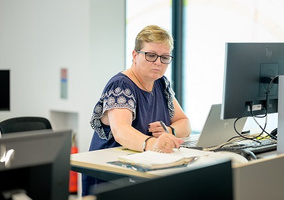The Charity Commission has called on charities that hold online meetings to review their governing document to ensure it is up to date.
It has redesigned guidance on charities and meetings, published today, in light of the changing ways in which people communicate since the Covid-19 pandemic.
The guidance emphasises the importance of complying with a charity’s governing document when holding meetings.
It also says trustees should make sure any rules around holding meetings are up to date and practical, including updating a charity’s governing document to set out details such as how votes will be held at virtual meetings and whether all meetings will be virtual or hybrid.
The guidance also recommends that charities that wish to hold virtual meetings have a policy that says how people can ask questions, join in the debate, and what would happen to the meeting if there were technical problems.
“People can get very passionate about their charity’s work, and this can lead to debates and disagreement,” it says.
“Even if you do not agree with a decision, you and the other trustees are collectively responsible for all decisions made by trustees, and you must make sure they are carried out.”
The guidance covers a variety of charities and different types of meetings, such as those between trustees and AGMs.
It also states charities should store their minutes for at least six years if they are a trust or unincorporated association.
Communication has ‘rapidly evolved’
Sam Jackson, assistant director, policy and strategy at the Commission, said: “The ways in which people communicate have rapidly evolved since the pandemic, and it is now very common for charities to conduct their meetings online or in a hybrid form.
“Our revised guidance reflects this development, and emphasises the importance of following a charity’s governing document and keeping it up to date to ensure good governance.
“After seeking feedback from trustees, we’ve also made the guidance shorter and easier to understand.
“Through these improvements, we hope to make it easier for trustees to know what is expected of them, and how they can act in the best interests of their charities.”
Related Articles












